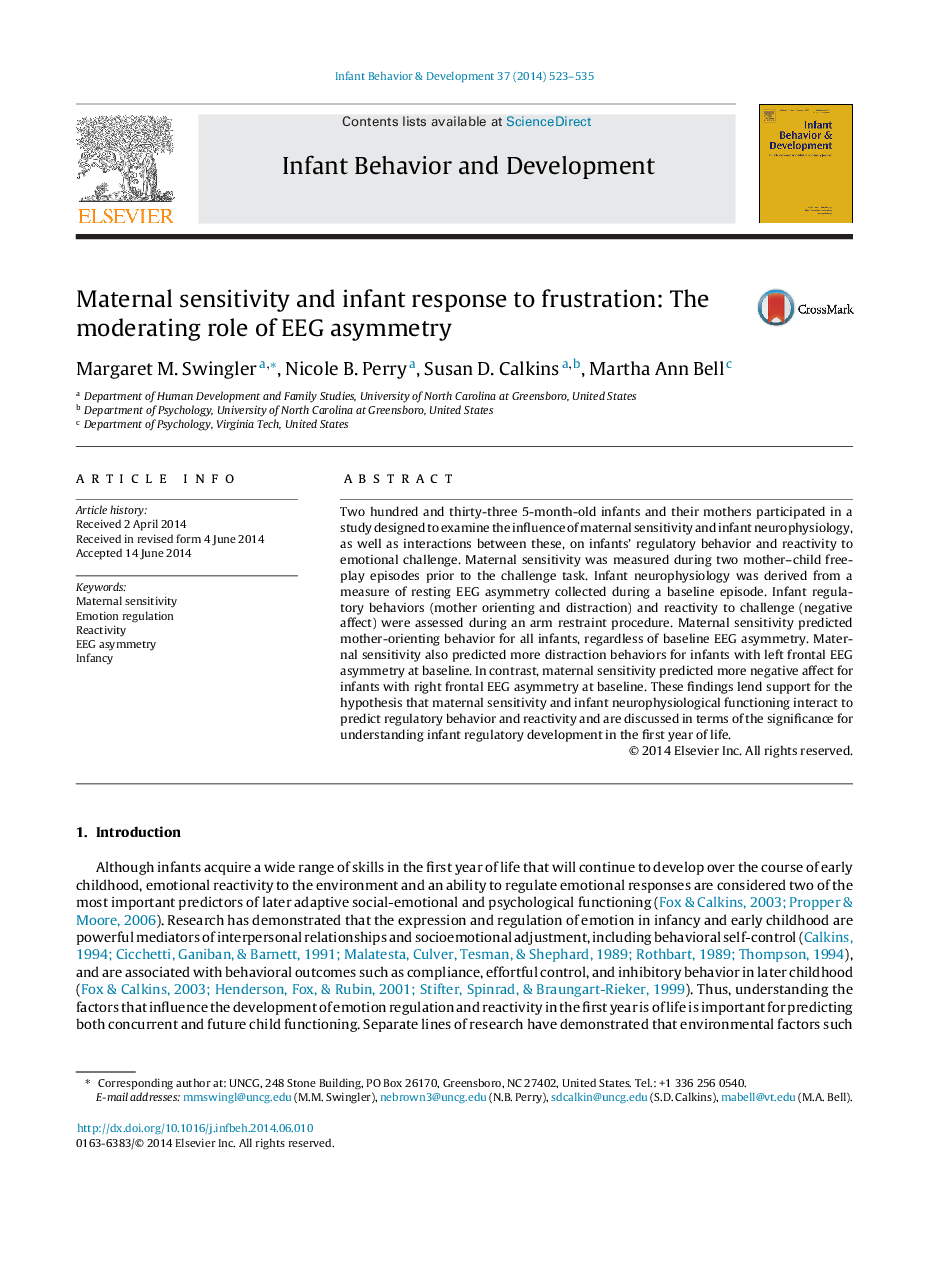| Article ID | Journal | Published Year | Pages | File Type |
|---|---|---|---|---|
| 10452620 | Infant Behavior and Development | 2014 | 13 Pages |
Abstract
Two hundred and thirty-three 5-month-old infants and their mothers participated in a study designed to examine the influence of maternal sensitivity and infant neurophysiology, as well as interactions between these, on infants' regulatory behavior and reactivity to emotional challenge. Maternal sensitivity was measured during two mother-child free-play episodes prior to the challenge task. Infant neurophysiology was derived from a measure of resting EEG asymmetry collected during a baseline episode. Infant regulatory behaviors (mother orienting and distraction) and reactivity to challenge (negative affect) were assessed during an arm restraint procedure. Maternal sensitivity predicted mother-orienting behavior for all infants, regardless of baseline EEG asymmetry. Maternal sensitivity also predicted more distraction behaviors for infants with left frontal EEG asymmetry at baseline. In contrast, maternal sensitivity predicted more negative affect for infants with right frontal EEG asymmetry at baseline. These findings lend support for the hypothesis that maternal sensitivity and infant neurophysiological functioning interact to predict regulatory behavior and reactivity and are discussed in terms of the significance for understanding infant regulatory development in the first year of life.
Related Topics
Life Sciences
Neuroscience
Behavioral Neuroscience
Authors
Margaret M. Swingler, Nicole B. Perry, Susan D. Calkins, Martha Ann Bell,
